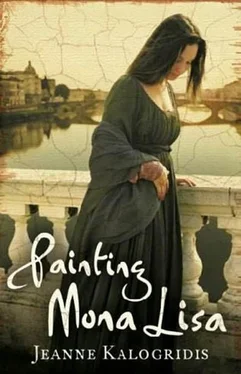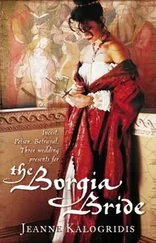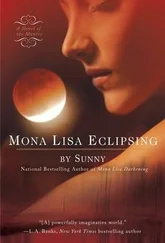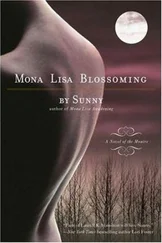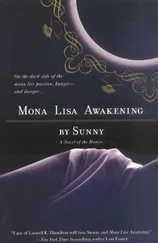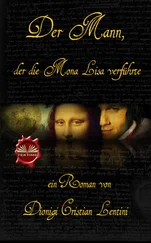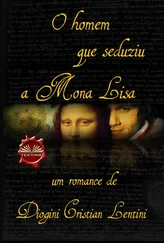It was Salai who-unable to restrain his enthusiasm-whispered the truth of it to me one day, as I left my prayers at the family chapel. I smiled. If this was the result of Leonardo’s work, then I could more cheerfully accept his absence.
Winter yielded to spring, which brought relentless rains. The lower-lying areas of the city flooded, damaging many workshops, including those of many dyers, which in turn delayed profits for Francesco’s silk and my father’s wool businesses.
But for the time, we had more than enough food to eat-especially given Francesco’s connections.
My husband’s mood was exceptionally cheerful during those days. I did not learn why until one evening at supper, when he was feeling particularly loquacious.
The storm outside had eased to constant heavy drizzle. After weeks of gloom, our palazzo was drafty and cold, so the three of us-my father, Francesco, and I-sat as close as possible to the fire.
Francesco had spent the afternoon at the Palazzo della Signoria; as a result, he was dressed in his best lucco , the long burgundy tunic trimmed with brown sable at the sleeves and neck. He came home smiling, and his cheerfulness only seemed to increase after his arrival. By the time we all sat down at the table-at the instant the wine was poured-Francesco could no longer contain himself.
“Good news, Ser Antonio!” he said, addressing himself to my father-my wan, faded father, who was Francesco’s age but looked far older. Francesco’s eyes were bright; his cheeks and the tip of his nose were still flushed from his ride home through the chill, damp air. Tiny beads of moisture had collected in his silver hair and gleamed with firelight. “You will remember, of course, the Pope’s brief last year, which called for Fra Girolamo to stop preaching?”
“I do,” my father replied, without enthusiasm. Savonarola’s sermons had continued in defiance of the order. There were those who said excommunication could not be far behind.
“His Holiness has, after investigating the matter, realized the unfairness of this request. Today, the Signoria received notice from him that Fra Girolamo can continue to preach, so long as he does not excoriate Rome, and specifically His Holiness.” Francesco beamed, then leaned his head back and took a long swallow of wine.
I listened but maintained a polite, disinterested expression. Secretly, I wondered whether Francesco had in fact learned this from the Signoria, or from his mysterious correspondent. I decided to search his desk that night if possible.
“Well,” my father said, “it’s just as well that he doesn’t anger Rome. People were beginning to worry, you know.”
“Such worries are unfounded,” Francesco said. “And people are too quick to forget all that Fra Girolamo has done for Florence. Charles might have razed the city, were it not for the friar’s intervention.”
My father nodded faintly, then stared distractedly into the fire.
“But what of the rumor,” I began, with feigned innocence, “that a letter was intercepted long ago, on its way to France… from Fra Girolamo to King Charles?”
My husband turned sharply on me. “Where did you learn such a thing?”
“Agrippina said she overheard it at the market. They say the friar begged Charles to come to Italy so that Florence would believe his prophecy.”
“I know what it says. How can you repeat such an obvious lie?”
“I mentioned it because I knew you would know the truth,” I said, so smoothly I astonished myself. “I have also heard the Pope was thinking of leaving the Holy League.” Pope Alexander had formed the League-which was backed by Naples, Milan, and the Holy Roman Emperor-in order to oust Charles from Italy. Savonarola of course opposed it, but Florence had been under great pressure from Rome to join.
This calmed Francesco. “That I had not heard. It is very possible. It would certainly be good news for us.” He paused and took another gulp of wine, then shot my father a sly glance. “Ser Antonio,” he said. “I was thinking that it’s high time you had another grandchild to enjoy.” His gaze flickered at me briefly before he smiled down into his goblet. “I am not a young man. I need sons who can take over the family trade. What do you think?”
Sickened, I lowered my eyes and stared down at the wine in my own cup. I yearned to drown myself in it.
“I think,” my father answered slowly, “that I had only one child. And I never felt lacking. I am very proud of my daughter.”
“Yes, we all are,” Francesco replied swiftly; his expansive mood could not be darkened. “And of course, it is wrong of me to discuss such things without first consulting my beloved wife.” He finished his goblet of wine and called for more, then abruptly changed the subject to the implications of the foul weather.
“High prices are coming,” my father said. “This happened before, when I was a boy. If the rains don’t stop, we won’t have any crops. And if that happens, I guarantee you, the starving will riot.”
“We need have no worry,” Francesco said firmly. “God smiles on Florence. The rain will stop.”
My father was unimpressed. “What if it doesn’t? What if there are no crops at all? Savonarola had best intercede if the sun is to shine on us again.”
Francesco’s smile faded a bit; he turned his careful gaze on my father. “It will, Ser Antonio. I promise you, it will.”
“Floods bring plague,” my father said. “Hunger brings plague. I have seen this before…”
Thinking of Matteo, I started. My father saw it and, chastened, took my hand. “I did not mean to frighten you. Plague would never affect us, Lisa.”
“Indeed not,” Francesco said, with a hint of warning. “We are in no danger of floods here, nor of hunger. No one in my house will ever go hungry.”
My father nodded by way of acquiescence before lowering his gaze.
We ate mostly in silence, except for Francesco’s complaint that the peasants were still too ignorant to realize the truth of the matter: that the Duke of Milan, Ludovico Sforza, and not Fra Girolamo, had given the Pisans the keys to their fortress. An unfortunate confusion, since it made men speak out against the one who loved them the most and prayed to God fervently on their behalf. It was, Francesco insisted, the only possible reason for the growth of the Arrabbiati , who were very close to becoming a formal political party opposing Savonarola and the piagnoni .
Afterward, Francesco hinted broadly that he and I were tired and would retire early; my father-who normally stayed later and enjoyed his grandson’s company-took the hint graciously and left.
As I excused myself to retire to my chambers, Francesco rose and gave me a pointed look.
“Go to your room,” he said, not ungently, “and tell Zalumma to undress you. I will be up shortly.”
I did so with a disgust so profound it verged on nausea. As Zalumma unlaced my gown, we studied each other with the same fear we had experienced on my wedding night.
“If he hurts you…” Zalumma murmured darkly.
I shook my head to silence her. If he hurt me, there was nothing I or she could do about it. I watched her put my gown in the wardrobe, then stood patiently as she brushed out my hair and braided it. At last, I sent her away. Dressed only in my camicia , I sat on the bed and apologized to Giuliano. Francesco touches only my body , I told him. He’ll never touch my love for you .
I waited alone on my bed for a miserable half hour. When the door opened, I looked up to see Francesco, his eyes red-rimmed and glittering, his balance unsteady. In his hand he held a goblet of wine.
“Beloved wife,” he murmured. “What do you say to my desire to have another son?”
Читать дальше
Конец ознакомительного отрывка
Купить книгу
